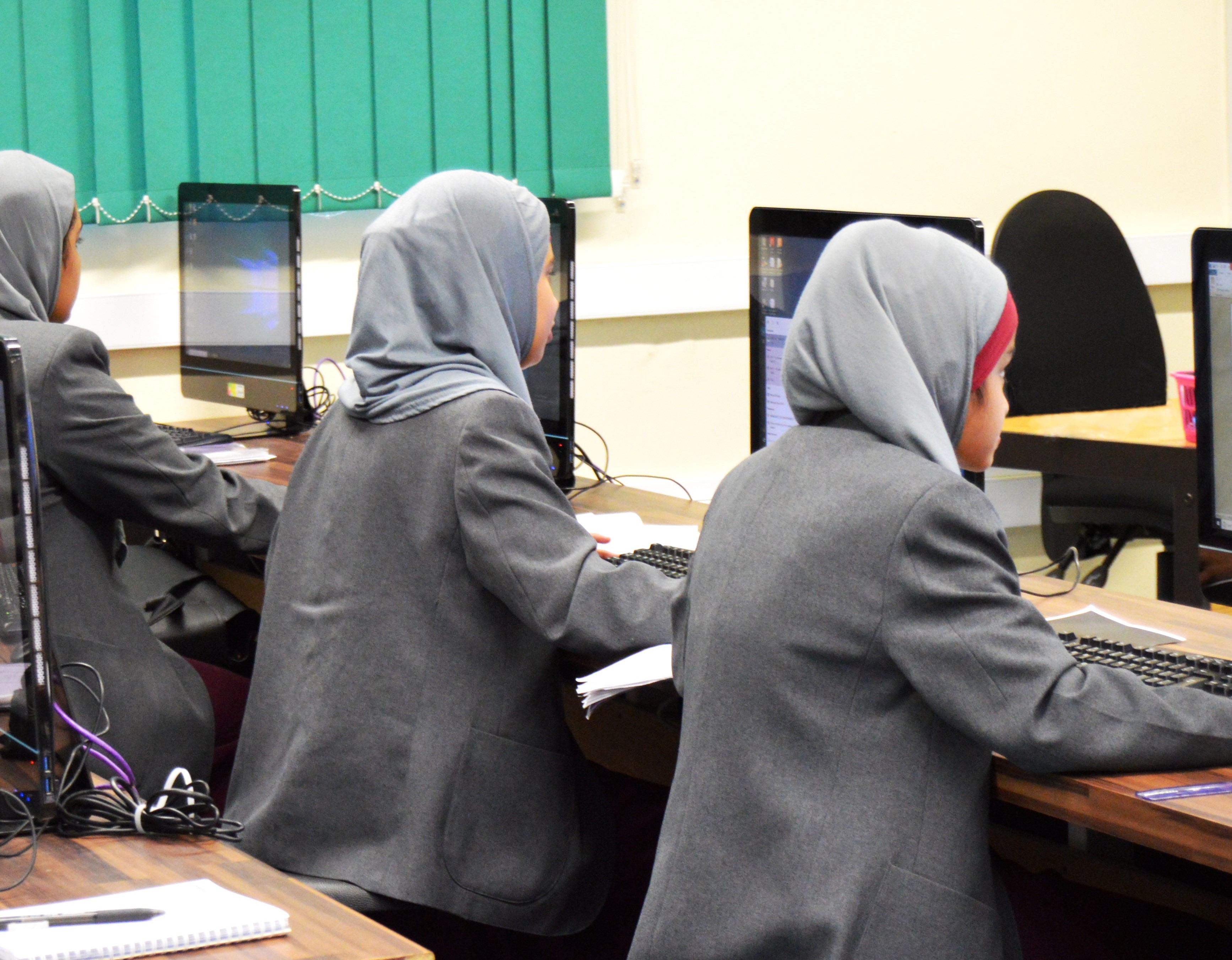
At Excellence Girls Academy, we are committed to safeguarding students and staff from any form of potential harm which extends to the use of Information and Communication Technology.
We recognise that the internet plays a vital role in a child’s education and can help enrich and extend learning activities, promote pupil achievement and raise educational standards. The use of the internet also supports the work of staff and helps maintain the school’s management systems.
We aim to maximise the educational benefit and fulfil the obligation of providing quality internet access to children as part of their lifelong learning experience, whilst adopting a safe culture and minimising any associated risks.
We take serious measures to ensure that students and staff are able to use the internet safely through:
- Having robust installed systems to filter what students can access on the internet.
- Students and staff signing our Acceptable Use Policy upon starting at Excellence Girls Academy.
- Training our staff and teaching our students about online safety and the risks of using technology and controlling their online experience.
For full information and further details, please refer to our Online Safety Policy, IT and Internet Acceptable Use Policy and our Safeguarding Policy on our policies page.
For more detailed information regarding how to keep children safe online, please visit the sites below where you can find a lot of support available:
- Parents and carers | CEOP Education (thinkuknow.co.uk) – Advice from the National Crime Agency (NCA) on staying safe online
- Information, Advice and Support to Keep Children Safe Online (internetmatters.org) – Provides age-specific online safety checklists, guides on how to set parental controls on a range of devices, and a host of practical tips to help children get the most out of their digital world
- Parent Zone – Support for parents and carers to keep their children safe online
- Parentsafe – London Grid for Learning (LGFL) – Provides tips to keep primary aged children safe online
- Parents & carers | Childnet – Offers a toolkit to support parents and carers of children of any age to start discussions about their online life, to set boundaries around online behaviour and technology use, and to find out where to get more help and support
- Net-aware – Support for parents and careers from the NSPCC, including a guide to social networks, apps and games
- Lets Talk About It – Staying Safe Online (ltai.info) – Advice for parents and carers to keep children safe from online radicalisation
- Parents and Carers – UK Safer Internet Centre – Tips, advice, guides and other resources to help keep children safe online, including parental controls offered by home internet providers and safety tools on social networks and other online services
- Report Harmful Content – We Help You Remove Content – Designed to help you report anything which you believe shouldn’t be online, with guidance about how to report different types of content as well as help with the next steps you can take if your report isn’t actioned by the site or service you have made it on.
- Keeping children safe online | NSPCC
- NCSC – National Cyber Security Centre
- Safeguarding Children – Get Safe Online
- Social media, online gaming and keeping children safe online | nidirect
- Parents’ Resources – Educate Against Hate
- Digital 5 a day | Children’s Commissioner for England
- Be Internet Legends – Online safety activities for the whole family
- Talking to your children about scary world news | Mental Health Foundation
CEOP
CEOP is a command of the National Crime Agency and is dedicated to tackling the sexual abuse and exploitation of children and young people. CEOP helps children and young people under the age of 18 who have been forced or manipulated into taking part, or are being pressured to take part, in sexual activity of any kind. This can be both online and offline. The CEOP Safety Centre offers information and advice for children and young people, parents and carers and professionals. You can visit the CEOP Safety Centre and make a report directly to CEOP by clicking the Click CEOP button below.
Online bullying or other online concerns should not be reported to CEOP and children and young people should be directed to speak to an adult they trust, and/or referred to Childline, if they would like to speak to someone about how they are feeling.


